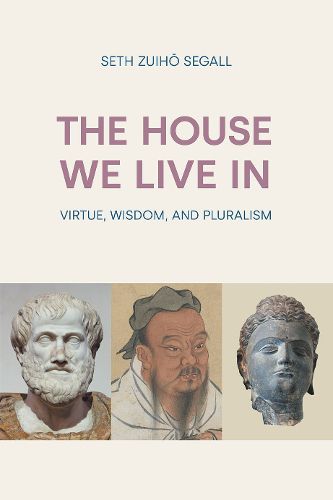Readings Newsletter
Become a Readings Member to make your shopping experience even easier.
Sign in or sign up for free!
You’re not far away from qualifying for FREE standard shipping within Australia
You’ve qualified for FREE standard shipping within Australia
The cart is loading…






This title is printed to order. This book may have been self-published. If so, we cannot guarantee the quality of the content. In the main most books will have gone through the editing process however some may not. We therefore suggest that you be aware of this before ordering this book. If in doubt check either the author or publisher’s details as we are unable to accept any returns unless they are faulty. Please contact us if you have any questions.
The values of liberalism, pluralism, and democratic governance are under sustained attack from right-wing Christian fundamentalists, white ethnonationalists, and economic populists. At the same time, liberal democracies are failing at cultivating and transmitting the values, wisdom, and virtues that are the perquisites for individual and collective flourishing. Liberal democracies seem increasingly unable to negotiate diverse visions of the good life rooted in regional, ethnic, racial, religious, generational, and socioeconomic differences. Aspiring autocrats and social media organizations exploit these divisions to enhance their power or profit, resulting in increased tribalization and affective polarization. Solving these problems requires a renewed understanding of human flourishing and the wisdom and virtues that make it possible. The House We Live In explores the commonalities underlying three classical approaches to virtue ethics--Aristotelean, Buddhist, and Confucian--to develop a flourishing-based ethics capable of addressing the problems of liberal democracies. The book examines the moral and intellectual virtues that promote flourishing, the diversity of ways in which we may flourish, and the factors all flourishing lives share. It shows how a flourishing-based ethics can serve as a corrective to the historical Western over-emphasis on individualism at the expense of community. Finally, it addresses problems in domestic and foreign policy and the difficulties in talking to each other across the political divide from a flourishing-based perspective. The book is a reaffirmation of pluralism, the liberal democratic tradition, and the necessity of a pragmatic approach to living together despite seemingly incommensurable differences.
$9.00 standard shipping within Australia
FREE standard shipping within Australia for orders over $100.00
Express & International shipping calculated at checkout
This title is printed to order. This book may have been self-published. If so, we cannot guarantee the quality of the content. In the main most books will have gone through the editing process however some may not. We therefore suggest that you be aware of this before ordering this book. If in doubt check either the author or publisher’s details as we are unable to accept any returns unless they are faulty. Please contact us if you have any questions.
The values of liberalism, pluralism, and democratic governance are under sustained attack from right-wing Christian fundamentalists, white ethnonationalists, and economic populists. At the same time, liberal democracies are failing at cultivating and transmitting the values, wisdom, and virtues that are the perquisites for individual and collective flourishing. Liberal democracies seem increasingly unable to negotiate diverse visions of the good life rooted in regional, ethnic, racial, religious, generational, and socioeconomic differences. Aspiring autocrats and social media organizations exploit these divisions to enhance their power or profit, resulting in increased tribalization and affective polarization. Solving these problems requires a renewed understanding of human flourishing and the wisdom and virtues that make it possible. The House We Live In explores the commonalities underlying three classical approaches to virtue ethics--Aristotelean, Buddhist, and Confucian--to develop a flourishing-based ethics capable of addressing the problems of liberal democracies. The book examines the moral and intellectual virtues that promote flourishing, the diversity of ways in which we may flourish, and the factors all flourishing lives share. It shows how a flourishing-based ethics can serve as a corrective to the historical Western over-emphasis on individualism at the expense of community. Finally, it addresses problems in domestic and foreign policy and the difficulties in talking to each other across the political divide from a flourishing-based perspective. The book is a reaffirmation of pluralism, the liberal democratic tradition, and the necessity of a pragmatic approach to living together despite seemingly incommensurable differences.